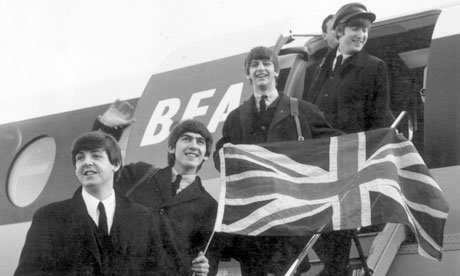
According to Pop Muzik, the 1979 hit single by M, the four corners of the tastemaker's world were once "New York, London, Paris, Munich". According to The Geographic Flow of Music, a considerably less catchy research paper by Conrad Lee and Padraig Cunningham of University College Dublin, the surprising modern equivalent would be "Atlanta, Oslo, Montreal, Paris".
Well, perhaps. The study, which uses such intriguing measures as "Euclid. Normalized Coldplay", is based entirely on listener data from last.fm, and has more to do with Gladwellian networks of mavens, connectors and salesmen than any of the musicians hailing from those cities. Oslo, for example, isn't even the most musically fertile city in Norway (that would be Bergen), let alone Europe. And Lee, taken aback by all the online attention, admits that he doesn't know why some cities are more influential than others. But his preliminary study does suggest that, even as the internet erodes the importance of local scenes, musical influence moves in mysterious ways.
In truth, all the explanations for sudden efflorescences of creativity are retrospective. Today's pop music backwater is tomorrow's capital of cool. French pop was so widely derided until the mid-90s that journalists profiling Air or Daft Punk were obliged by law to crack wise about Johnny Hallyday. The Pacific northwest was musically insignificant until the grunge boom, at which point weekend flights from LA to Seattle were booked solid by A&R men waving fistfuls of cash at any band who had ever played the same bar as Nirvana.
The explosion of a new scene turns critics into amateur ethnographers, suddenly wise about the cultural impact of maritime trade and heavy industry. Sometimes you can isolate concrete socioeconomic factors that allowed musicians to thrive during certain periods: Bristol's multiracial population in the 80s; Atlanta's rising black middle-class in the 90s; Berlin's cheap rents today. Other possible causes are more nebulous. Histories of grunge tend to mention the nagging northwestern rain, while accounts of the Human League and Sheffield's synth-pop vanguard inevitably cite the steelworks. But rain and factories aren't magic ingredients. Just ask Gdansk.
It's because talent is such a slippery, unpredictable quality that every theory is retrofitted according to isolated success stories. Say what you like about the significance of sailors bringing rock'n'roll records back to Liverpool from the US, but the Beatles were great because they were the Beatles and not, say, Rory Storm and the Hurricanes. The Manic Street Preachers didn't trigger a landslide of bands from Blackwood, south Wales, even though they were decisively shaped by the town. Some areas glow with talent for a brief, wondrous period and never experience anything like it again. The initial excited questions – "Why here? Why now?" – give way to "Why not again?"
In many cases, obscurity is a boon. While cosmopolitan hubs such as London or New York will always attract musicians from all over – today the latest so-called "Brooklyn band" probably has its roots somewhere else entirely – most exciting local bands and scenes, like mushrooms, flourish in the dark. Many groups can trace their distinctive aesthetics back to limited options, such as the racks of their town's only record store or the playlist of a celebrated local DJ, and a more general sense of being excluded from the tastemaking circuitry of big cities. The Arctic Monkeys came from High Green, a village so small you can get off the bus at one end and emerge in a field 10 minutes later. On their debut single, Fake Tales of San Francisco, they taunted indie poseurs: "You're not from New York City, you're from Rotherham." Even as it had the well-turned bathos of a Victoria Wood line it made a serious point: don't deny your origins, however unglamorous, but draw on them.
But technology is working against geographically specific scenes. History suggests that idiosyncratic music is often informed by boredom, isolation, distance and limited access, conditions that the internet alleviates. This is the age of peripatetic young bohemians flitting from capital to capital; DJs whose natural habitat is the airport VIP lounge; hybridising laptop producers whose music seems to come from everywhere yet nowhere; omnivorous global hipsters for whom music is as mobile as their phones. That doesn't by any means guarantee worse music but it does make the peculiar integrity of local scenes harder to maintain. For producers and listeners, from Oslo to Atlanta, the rapper Rakim's famous maxim is increasingly true: It's not where you're from, it's where you're at.
• Follow Comment is free on Twitter @commentisfree

